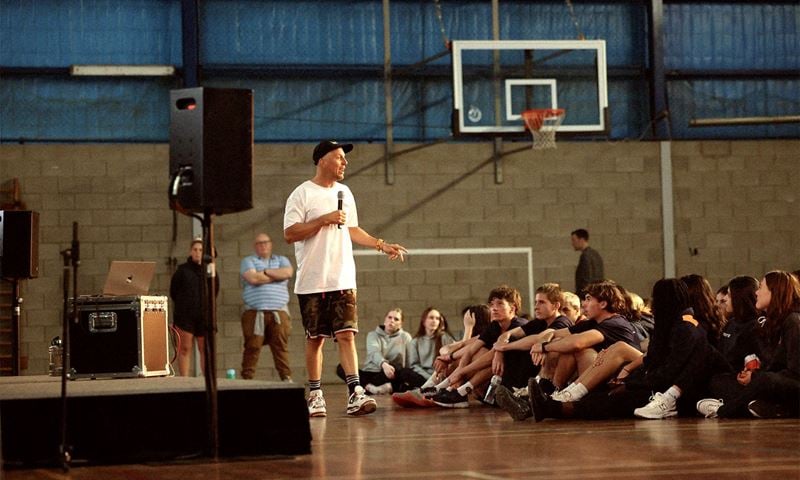Written by Abbey King, GT Magazine
Children and teens in this current technological age are often faced with pressures their own parents have never had to deal with.
From performance at school to comparisons on social media; children of all ages can regularly find their self-esteem tested.
Geelong-born, Melbourne-based clinical psychologist Andrew Fuller was recently in town for GMHBA’s seminar Building resilience in children and teens. As the author of books such as Unlocking Your Child’s Genius, Tricky Kids, Tricky People and Raising Real People, Andrew has worked with more than 200,000 young people nationwide in more than 1,500 schools and has extensively researched how to create positive outcomes for kids.
Andrew’s seminar uncovered and explored the active ingredients of resilience and how parents and guardians can develop them in young people.
“Basically we know resilience is one of the most important features to having a good and happy life,” says Andrew, a fellow at the University of Melbourne.
“Based on research I’ve been involved with, we know that people thrive when they connect with one another, protect one another and respect one another.
“What we call the ‘CPR of wellbeing’.
“We need to talk about how we build on these three things; how do we build relationships with people and connect with each other – sometimes the technology works against that.
“It’s also about connecting with themselves and their own strengths and protecting one another, how do we remain safe in the care of each other?”
Andrew says the impact technology has had on building resilience goes both ways. He says there are some positive ways of using technology to help develop good relationships, however it must be done with caution.
“The world has changed dramatically with technology,” he explains. “We need to be thoughtful about kids’ digital diet and how they can use the digital world well. “If we just use it to demean one another and compare ourselves then that’s crazy.
“But if we use it to share ideas and build relationships, that’s amazing.”
Having worked in psychiatric crisis teams in the past, where he has sat on bridges with people who were in a severe mental state, Andrew found himself wanting to be able to stop the vulnerable from getting to that drastic point in their life.
“My mission, my job, is to help co-create with people futures they can fall in love with,” he says.
“While it’s easy to talk about what’s wrong in the world; today’s kids, for example, are incredibly smart.”
As a way of helping build resilience and in turn help kids discover an achievable future, Andrew launched his new website called mylearningstrengths. The website requires children to fill out a survey and once completed they will receive an analysis of their learning strengths and a personalised letter from Andrew.
“You have to learn to play to your strengths in life and that’s what I’m trying to do,” he says.
“Kids think they have to be good at everything, that’s the crazy thing.
“They certainly think they have to be at least as good as the person they are comparing themselves to on social media; ‘I’ve got to be skinny enough,’, but they just don’t.”



